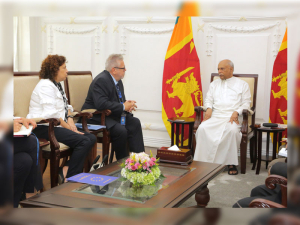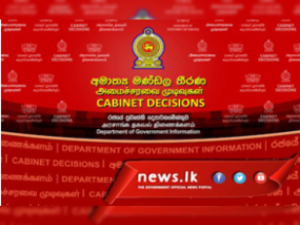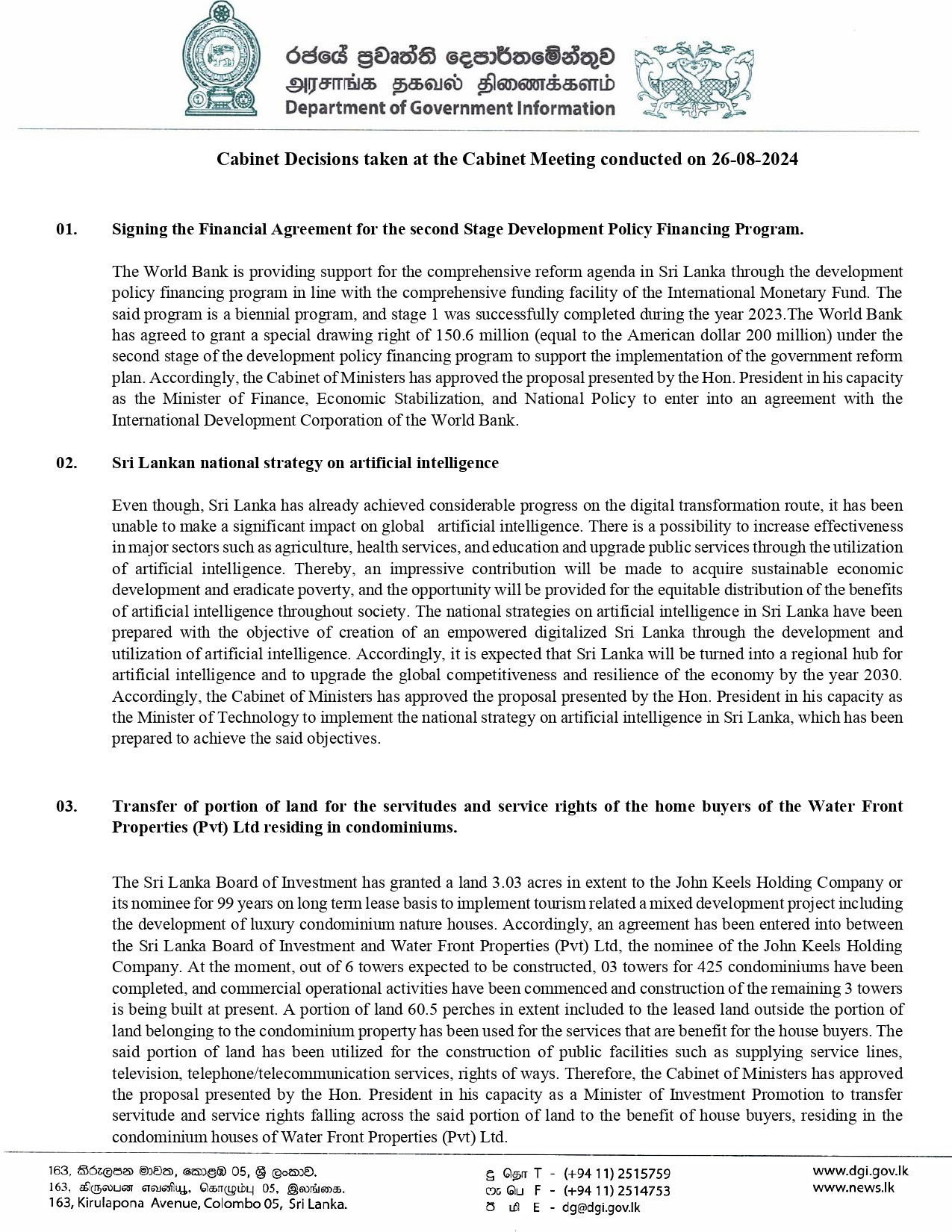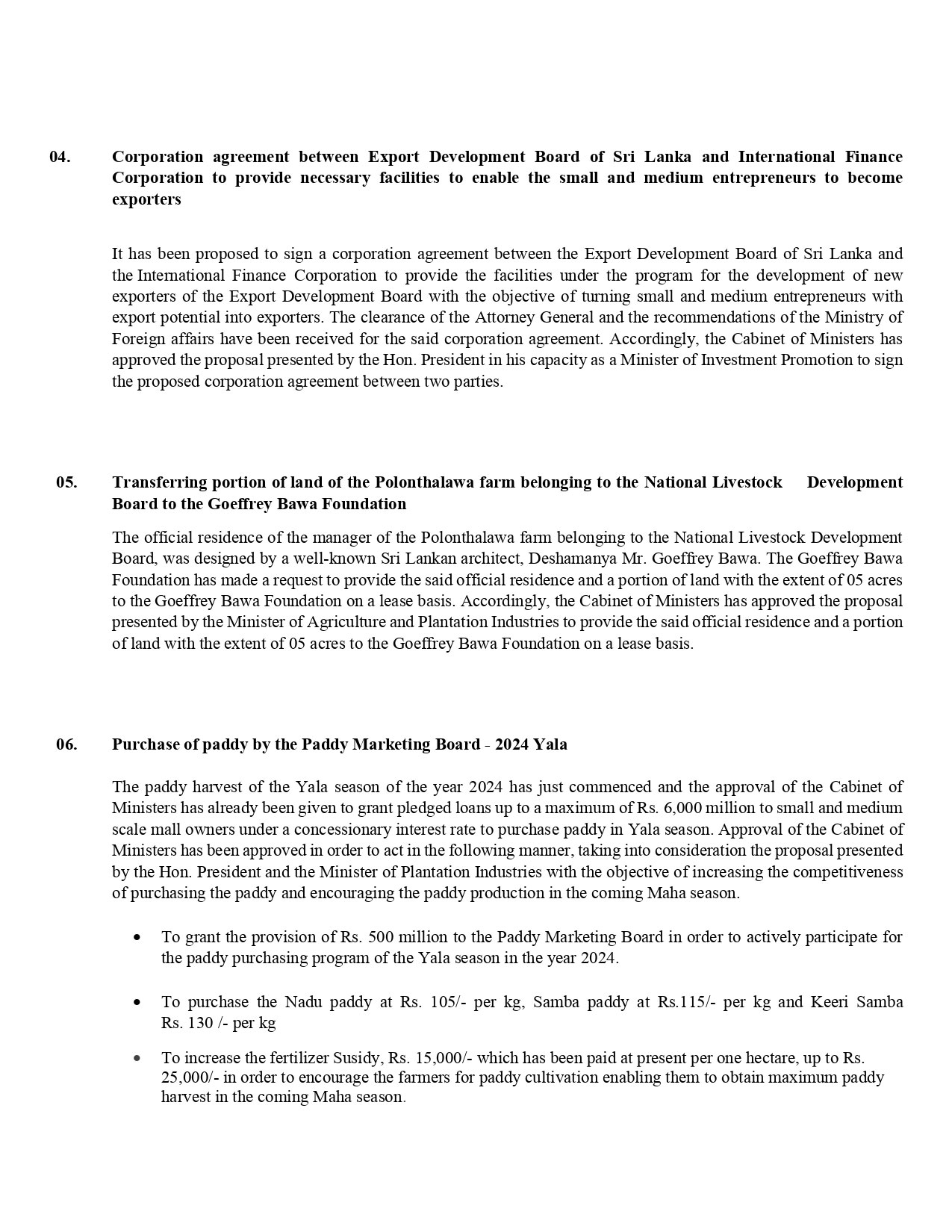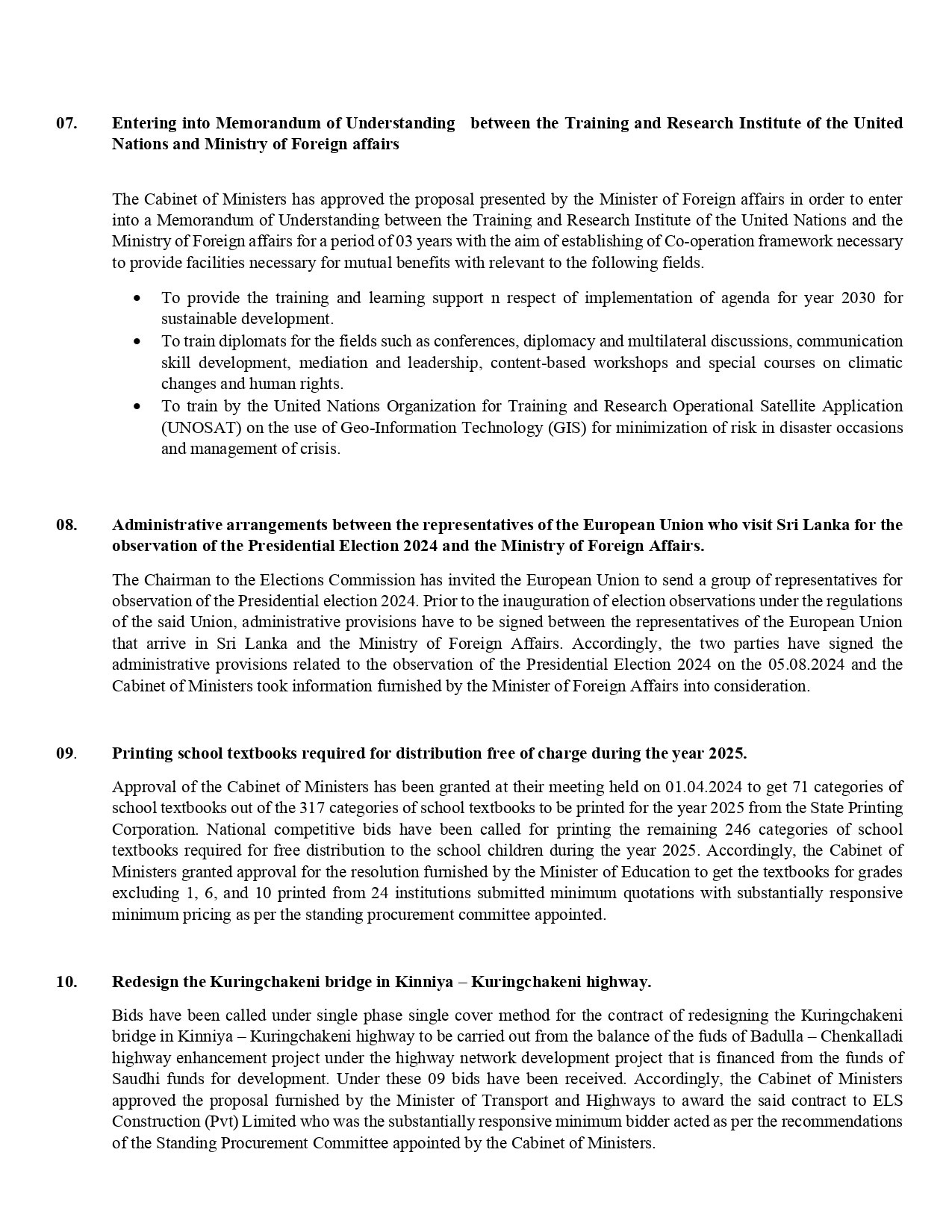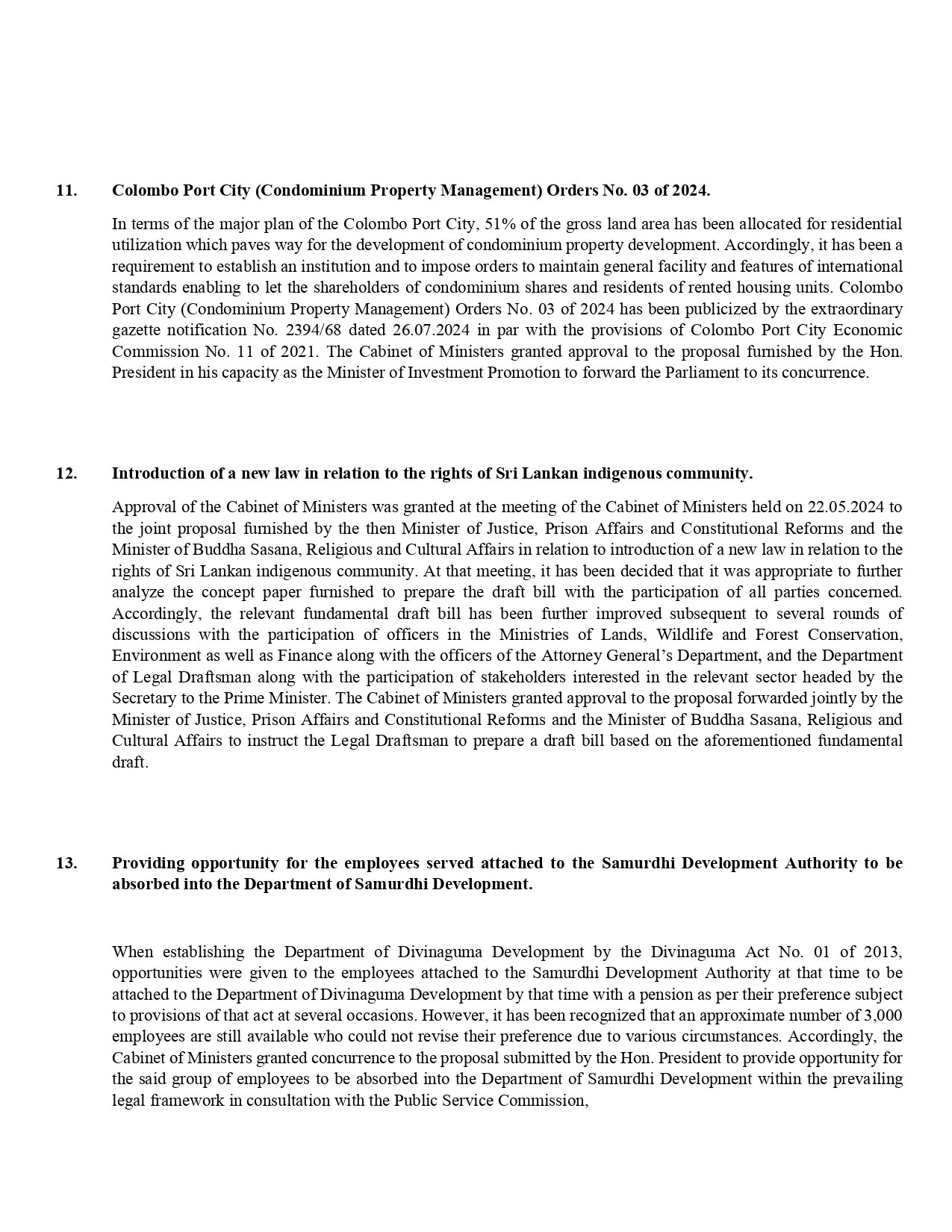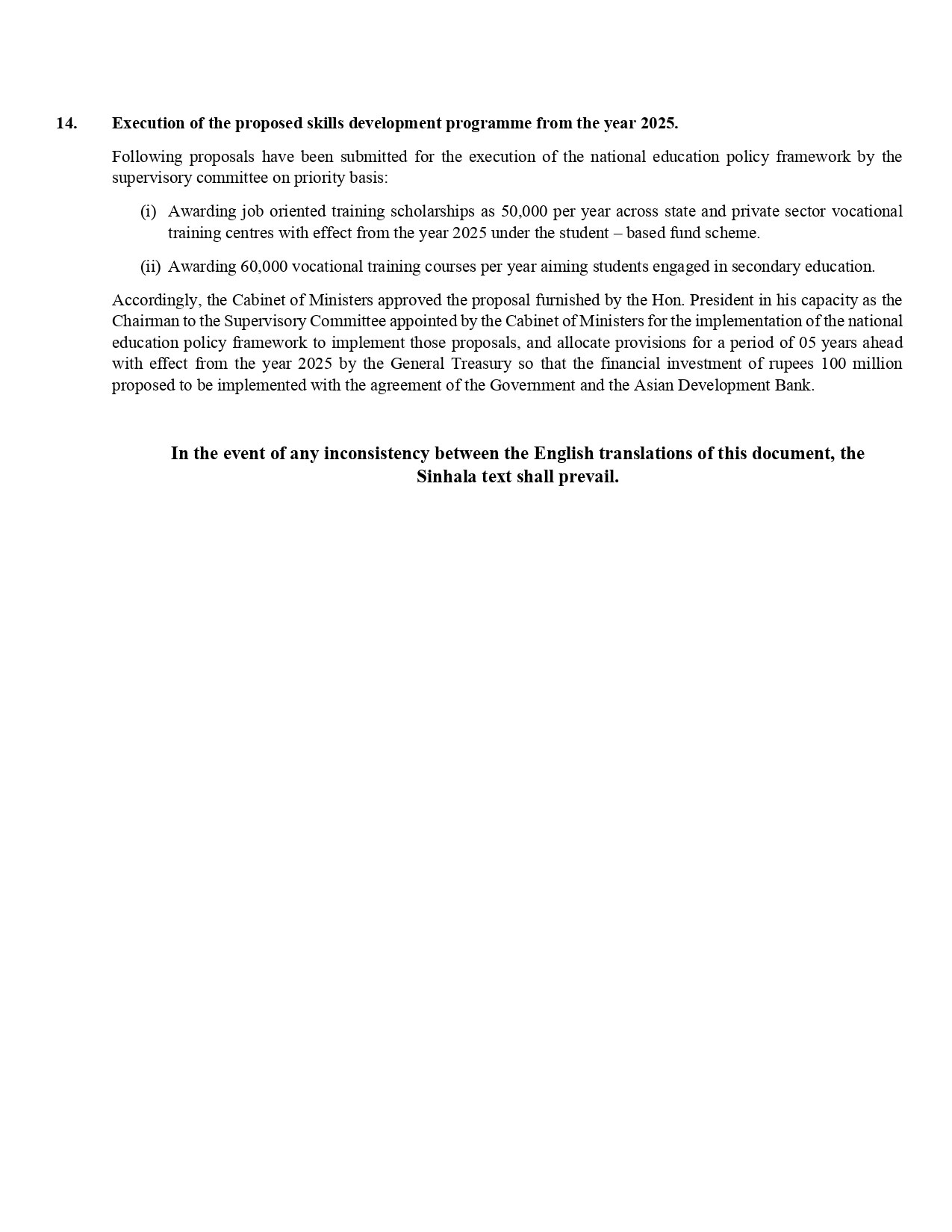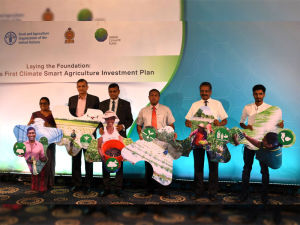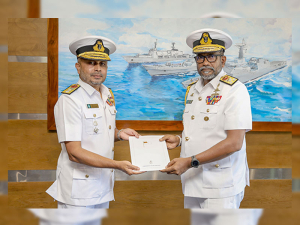Devika
A group of election observers from the European Union, together with the EU Ambassador have called on Prime Minister Dinesh Gunawardena at the Temple Trees in Colombo today (27)
The Head of the EU Election Observer Team, Jose Ignacio Sanchez Amor thanked the government for the support extended to the mission to carry out its monitoring mission and said the forthcoming presidential election will give a new impetus to democracy following the 2022 political and economic crisis. “This election is important for Sri Lanka to continue making progress on its path of reforms and lasting recovery, in full respect of democratic values,” he said.
The Prime Minister expressed the government’s total commitment to free and fair elections and pointed out that the Election Commission is an independent institution and all the decisions pertaining to the elections are taken by the Commission. “The government has made the allocation of budgetary requirements and the rest is for the Commission to carry out”.
The EU has previously conducted election monitoring in Sri Lanka six times with the last being at the presidential election of 2019. “The deployment of the Election Observation Mission in Sri Lanka this year confirms our long-standing commitment to supporting credible, transparent, inclusive and peaceful elections in the country,” EU Ambassador Carmen Morena said.
The EU will deploy 26 observers across the country to follow the election campaign. An interim report will be issued immediately after the election and the full report will follow thereafter.
They also discussed the economic situation and the Prime Minister said Sri Lanka took lessons from the experiences faced by Spain, Greece and other European countries during the economic crisis. Head of the EU Mission Ambassador Sachez Amor, who hails from Spain said he was highly impressed with Premier Gunawardena’s political career and made a special reference to the most distinguished award given by his country, the Orden de Isabel which was awarded by the King of Spain in 2012 to the then Minister Dinesh Gunawardena.
The delegation included Deputy Chief Observer Inta Lase, Political Analyst, Ralph-Michael Peters and Press Officer, Marek Mracka. Secretary to the Prime Minister, Anura Dissanayake, Additional Secrretary Mahinda Gunaratne, Advisor Sugeeswara Senadhira and Coordinating Secretary Kalana Gamage also took part in the discussion.
Sri Lanka Advances Climate Resilience with FAO's Initiative on First Climate-Smart Agriculture Investment Plan
August 27, 2024In a bid to combat the escalating challenges posed by climate change, Sri Lanka has commenced the formulation of its first Climate-Smart Agriculture (CSA) Investment Plan. This landmark initiative, funded by the Green Climate Fund (GCF) and implemented by the Food and Agriculture Organization of the United Nations (FAO) in partnership with the Ministry of Environment and Ministry of Agriculture, aims to develop a comprehensive strategy to safeguard the country's agricultural sector from the adverse impacts of climate change.
Sri Lanka, with its tropical climate, is highly susceptible to the effects of climate change, consistently ranking among the top ten countries at risk of extreme weather events according to the Global Climate Risk Index. Projections indicate significant shifts in weather patterns, including rising temperatures, erratic rainfall, and increased frequency of extreme events, all of which have already begun to diminish agricultural productivity and water availability across the island.
Agriculture in the dry and intermediate zones is particularly vulnerable to the changing and variable climate due to climate change, with research projecting an average 10-12% yield reduction if appropriate interventions are not implemented to mitigate these effects. The CSA Investment Plan is designed to be a strategic and comprehensive blueprint for fostering agricultural development that is resilient to climate change. Through this plan, FAO specialists, including both international and national experts, will work closely with a wide range of stakeholders—including government bodies, the private sector, and academia—to assess national climate finance priorities and develop innovative investment mechanisms tailored to the unique challenges faced by Sri Lanka’s agricultural sector.
Mr. Prabath Chandrakeerthi, Secretary of the Ministry of Environment and representative of the National Designated Authority, highlighted the significance of this initiative, "Sri Lanka's vulnerability to climate change is a pressing concern, particularly for our farmers who are at the frontline of this crisis. The development of a Climate-Smart Agriculture Investment Plan is a timely and necessary step to equip our agricultural sector with the tools and resources needed to adapt and thrive in a changing climate. We are committed to working collaboratively with all stakeholders to ensure the success of this initiative."
This investment plan will bridge the gap between farmers and investors, attract private sector investment for climate-smart interventions, and open new avenues for youth and young entrepreneurs. Mr Vimlendra Sharan, FAO Representative for Sri Lanka emphasized the importance of this initiative, "Climate change is not a distant threat—it is a present reality that is already affecting our farmers and our food security. The Climate-Smart Agriculture Investment Plan will be a vital tool in ensuring that Sri Lanka's agricultural sector can adapt to these changes and continue to thrive in the face of adversity."
This workshop marks the first of several consultations planned as part of the CSA Investment Plan's development process, reflecting FAO's commitment to an inclusive, participatory approach that brings together all relevant voices in the fight against climate change.
About FAO
The Food and Agriculture Organization of the United Nations (FAO) leads international efforts to defeat hunger. It helps countries modernize and strengthen agriculture, forestry, and fisheries practices, making them more sustainable and ensuring food security & nutrition for all. FAO focuses special attention on developing rural areas, home to the majority of the world's poor and hungry people. For more information visit: www.fao.org or follow FAO on Twitter @FAOSriLanka @FAOnews @FAOknowledge
Hon. Ranil Wickremesinghe, the President and Commander - in - Chief of the Armed Forces of Democratic Socialist Republic of Sri Lanka appointed Rear Admiral Kanchana Banagoda as the Chief of Staff of Sri Lanka Navy with effect from 16th August 2024. The Commander of the Navy, Vice Admiral Priyantha Perera formally handed over the letter of appointment in this regard to Rear Admiral Banagoda at the Navy Headquarters yesterday and expressed his best wishes.
Rear Admiral Kanchana Banagoda is a distinguished old boy of S. Thomas' College, Bandarawela. He joined the Sri Lanka Navy in 1989 as an Officer Cadet of 19th intake, in the Executive branch. On successful completion of his basic training from the Naval and Maritime Academy, Trincomalee, he was commissioned as a Sub Lieutenant in 1991. The senior officer completed his Sub Lieutenant Technical Course at the Naval and Maritime Academy in 1993 and specialized in Anti-Submarine Warfare from Indian Naval Ship Venduruthy in 2000. Advancing steadily in his professional journey, the senior officer reached the rank of Rear Admiral on 04th May 2022.
He completed the Staff Course at the Defence Services Command and Staff College, Bangladesh in 2009 and earned a Master of Business Administration degree in Human Resource Management from the Open University of Sri Lanka in 2015. Furthermore, he obtained a Master’s Degree in Maritime Policy from the University of Wollongong, Australia, in 2019 and attended the National Defence Course in National Security and Strategic Studies at the National Defence University, Colombo in 2021.
In recognition of his noble service rendered to the motherland, Rear Admiral Banagoda has been bestowed Rana Sura Padakkama for his gallantry. Moreover, he has also been awarded the Uththama Sewa Padakkama (USP), for his unblemished character and devotion to the duty.
Rear Admiral Kanchana Banagoda has had the privilege of commanding various Fast Attack Craft, Ships and Establishments in the Sri Lanka Navy. Among some of the other appointments he held; Director Naval Training, Commander Southeastern Naval Area, Commander North Central Naval Area and Commander Northern Naval Area stood prominent. Prior to being appointed as Chief of Staff of the Sri Lanka Navy, he was discharging duties as Commander Eastern Naval Area.
Rear Admiral Kanchana Banagoda is married to Mrs Anusha Banagoda and they are blessed with a daughter Amavi and a son Himeth.

